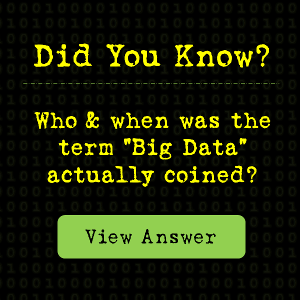Data Mining - How Much Privacy Are You Willing to Give Up?

Data mining is a complicated practice that, detractors say, is inherently deceitful and invades our privacy. But it doesn't look like it's going away-there are simply too many Big Business benefits to be derived from it. It comes down to deciding on ethical frameworks, legal/administrative limitations and protocols that may counteract wrong-doing.
Defining Terms, Weighing Ethics
Data mining uses computers and advanced analytical techniques to find relationships in large databases. These relationships can lead to productive and beneficial purposes, but they can also involve deceitful, fraudulent and potentially harmful purposes. In fact, whether data mining is ethical or unethical is a matter of personal opinion, and the line between legal/illegal may be just as blurry.
Some examples: Entertainment venues (like Netflix) track member usage to see how they can improve service. The government is amassing (some of it secretly) tons of information, supposedly for the public good.
What about the way merchants and financial institutions store and share customer information? Every time you use an ATM machine, use a debit or credit card, borrow money, fill out a check, etc., you leave digital footprints being used to create profiles of you, according to Alrc.gov.au. The “footprints†you leave behind are disseminated often without your consent or knowledge. Ultimately, you can receive denied privileges (low interest rates, good credit rating, etc.) based on this information.
There is also the innocent use of the Internet. Every website you visit, Youtube video you watch, book you buy, questionnaire you fill out, email you send/receive, comments you read/write and social networking websites you visit is being gleaned, stored and analyzed. The results of this data mining can decide employment qualifications, status, how you may be profiled and whether you qualify for special privileges.
There are potential benefits of data mining in medicine. The use of electronic health records may substantially change how randomized clinical trials (RCTs) are conducted in the long run or whether they're conducted at all, according to ihealthbeat.org. After all, doctors produce information every day which can guide and shape medical care as well as RCTs-without the high costs, approval hurdles and ridiculously long time periods to conduct trials.
Despite potential benefits, data mining has serious negative connotations. People view it as synonymous with invasion of privacy.
What Are Some Specific Examples Data Mining Abuses?
Life insurance companies supposedly track and store patient information in every state. People can be denied coverage based on medical history, even if they did not volunteer the information. Although this is generally accepted, will people accept the same companies using genetic records for similar decisions? A family history of cardiovascular disease is not a guarantee someone is susceptible to a heart attack, but that’s exactly what an insurance company may assume.
What about the issue of accuracy? Just because data has been amassed and analyzed does not mean that it is correct or up-to-date. Information about consumers, citizens and patients can lead to false assumptions, regardless of the sophistication of the analytical tools used.
Mishandling of data can also occur in any of the dozens of tools involved in data mining. Some of those tools include:
- Database administration
- Statistics/analytics
- Business analysis
- Accountancy
- Data visualization
- Programming
- Data warehousing
- Process automation
- Report writing
- Data querying
- Project management
- Multi-dimensional data analysis
- Application integration
- Data exploration
Can You Guard Against Data Mining?
Data mining has already affected the lives of millions, whether you realize it or not. Even if laws are passed to better protect privacy, there is no guarantee that they will work; in fact, they may ultimately be unenforceable. Rather than worrying about the macrocosmic ramifications of data mining, though, maybe what is more realistic is protecting yourself in simple ways from the potential dangers of data mining.
To that end, be careful about the personal information you disseminate on the Internet. Limit social media engagement to people you absolutely trust. By being cautious, advises the identity theft protection service LifeLock, you may not only protect your privacy but also avoid becoming an identity theft victim, in spite of the inherent threats of data mining.
New Hampshire, Vermont and Maine have passed laws against physicians and pharmacists sharing patient prescription information with drug companies - only to have said laws challenged or overturned-is one glaring example, theHealthCareBlog.com notes. The U.S. Supreme court being scheduled to hear arguments on both sides will only settle one small aspect of data mining.

 Jiro
Jiro






